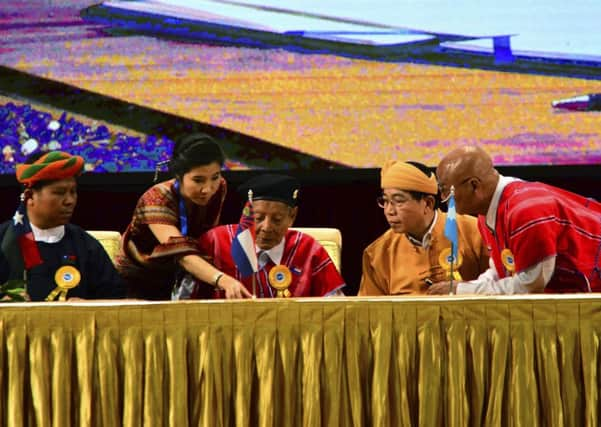Myanmar signs ceasefire with eight rebel armies


The pact was signed at a ceremony in Myanmar’s administrative capital, Naypyitaw, by president Thein Sein and representatives of the groups. The refusal by the larger armies, such as those of the Kachin and Wa ethnic groups, to sign it robs Mr Thein Sein of what he had hoped would be the crowning achievement of his five-year term.
Still, the agreement, called the National Ceasefire Agreement, despite its truncated list of participants, is seen as a first step toward ending longstanding insurgencies against the Burmese-majority government by various minority groups demanding autonomy and control over their natural resources in the north, north-east and east of the country.
Advertisement
Hide AdAdvertisement
Hide AdEthnic groups, representing 40 per cent of the country’s 52 million people, have found themselves victims of military abuses and discrimination in areas spanning from health and education to road construction and access to electricity.
“Although some organisations are currently not ready to sign, the government decided to conclude the [agreement] with the vanguard group.” Mr Thein Sein said in a speech at the signing ceremony.
“We will continue with our efforts to bring the remaining organisations into the process. The door is open for them,” he said. “The road to future peace in Myanmar is now open.”
Though largely an agreement to keep talking, the agreement could pave the way for a more comprehensive political settlement in the future.
“It can’t be considered a nationwide ceasefire agreement but it is the start of a process that might actually lead to all the ethnic groups signing the cease-fire agreement,” Larry Jagan, a specialist on Myanmar said.
The country stunned the world by opening politically and economically in 2011 following a half-century of harsh military rule. But early reforms have since either stalled or started rolling backward. That has upped the stakes for getting ceasefire deals with all ethnic armies, one of Mr Thein Sein’s biggest pledges.
Many ethnic armies have been fighting since the country gained independence from the British in 1948, and experts say continued civil unrest is slowing development.